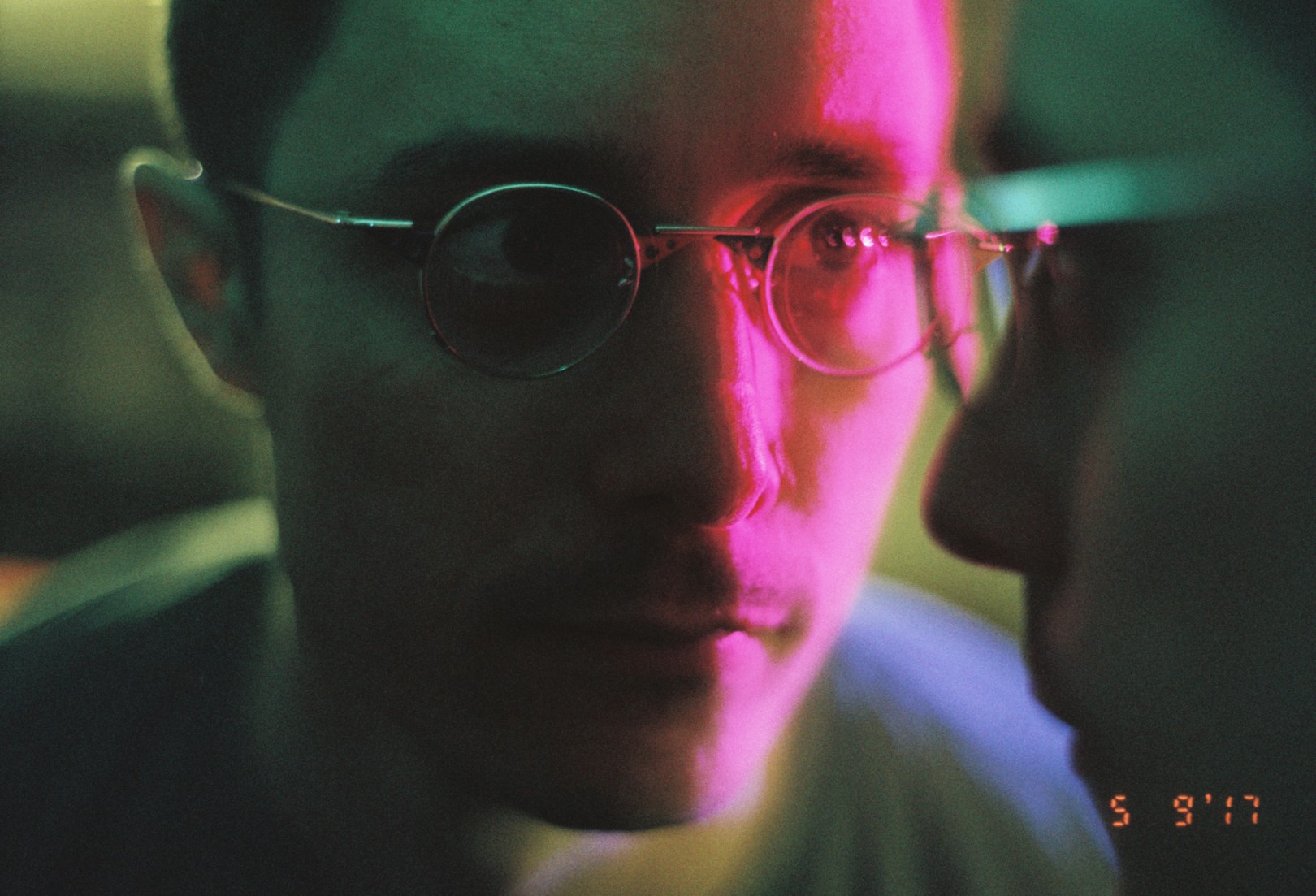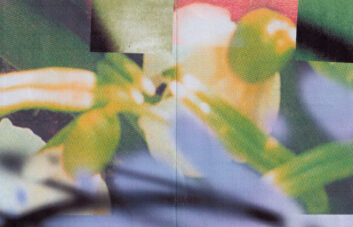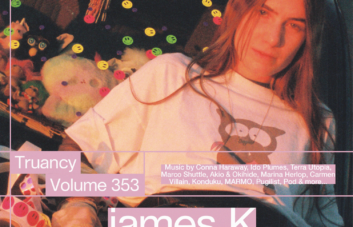Three years ago, we called Suzi Ecto “an expansive piece of art” in which Call Super created a “sonic world inspired and shaped by … club music”. Since his debut album, he’s released half a dozen 12”s, also going by Ondo Fudd and Elmo Crumb as well as sharing one record with Shanti Celeste and collaborating on another with Beatrice Dillon. And then there’s the small matter of his Fabric CD, which raced between music from friends and contemporaries, long-standing influences and his own productions. Earlier this month he released Suzi Ecto’s follow-up, Arpo, on Houndstooth – a record that feels more insular than its predecessor, yet comfortably so. Once again Call Super trades in beautifully rendered scenes embellished by the virtuoso clarinet of his father, David Seaton. Ideas are teased before they return fully expanded, a “journey” of a record that folds back in on itself. If we were the types to make lists you can be sure it’d be near the top for this year.
Having started the year with the aforementioned Fabric mix, he’s finishing 2017 with the latest entry to our series of Truancy Volumes. An 85-minute mix, it covers extensive ground. Not only does it run through strands of house and techno like your mind runs through rooms in a dream, it features Call Super at his most playful, exercising fast cuts, volume chops and breathtaking acapella transitions. You can tell that he’s enjoying every minute.
Hey Joe, thanks for taking out some time to do us this mix and answer some questions! It’s been on heavy rotation for everyone at Truants and we’re super excited to get this one out. In an attempt to not re-ask too much you’ve already spoken about in recent interviews, I’ve picked out some small things (possibly waxing nostalgia) that I found interesting and thought about asking in greater detail. Going way back what can you tell us about reading the book Freaky Dancin’ by Bez growing up? “Wow. Absolute knock out first question. No question the best I’ve ever had. Great, great book. The story about him robbing a golf club and then getting busted because he tried to sell ten golf jumpers to a cop in a pub is one of my favourites. He was living in a shed at the time. I’ve always had a very clear vision of Bez’s shed in my head. The next year he got raided for weed and threw a load of seeds down the drain. Coming home after being locked up for a few months and having a four foot weed plant growing out of the plug hole, that was a memorable tale. That book opened my mind to the fact that life could be anything you wanted it to be and you should just try and make fun stuff pay if you can. Can’t wait to play in Bristol on the same line up as my hero in February.”
From what I’ve gathered, routine seems to be important to you and reading makes up a large part of that. Can you recommend us any recent books or bits of writing that might have springboarded idea generation or emotion for your music in the past or even recently? “I recently finished Olivia Laing’s Alone in The City. [It] taught me a lot about things I felt when I was growing up but hadn’t been able to put into words or coherent thoughts. I understood more about why I make music the way I do and the role it has in my life. Not sure that it will feed back in to my work but maybe everything we consume does… I don’t know. I also loved Hilton Als’ essays on Alice Neel that were published this year. Cover to cover inspiration right there!”
A small thing we noticed between your first album and your second were two tracks called “Okko Ink” and and “Ekko Ink”, two tracks with very similar names but don’t really sound alike. Anything you can tell us about these two? “I’m someone that believes in creative evolution rather than just tearing things up for the sake of new ideas. Maybe because I’ve never really suffered a lack of ideas I’m lucky enough to be able to operate like that. Ekko is an evolution of Okko.”
What can you mention about listening to the album in different formats? From what I’ve read, tracks are divided in different ways so you get quite a different sense of the record, depending on the format that you engage with. “I think you get a slightly different feel of the record depending on where the breaks are. My favourite version is the record one where the first two sides begin the same but different.”
One major thing I wanted to ask is about the process with your dad. Do you play music that you’ve made for your dad and ask him to improvise, or does your dad play bits and then you work around that? Or is it more of a collaborative way of working? “It depends on what I want to write. “Arpo” was a simple song written for four clarinets with a section for one of them to improvise for 32 bars. Sometimes we go for just a section of free improv (e.g. “Fluo” on the Hessle 12”) and sometimes it’s very tightly notated and communicated by me.”
In a recent interview with Crack where they talk about admiration for Call Super being pretty much unanimous, your reply seems to be described as met with ‘cautious idealism’. This may just be modesty but what do you make of all that? Is there enough back and forth in critiquing music these days or is it something that’s best ignored. “I don’t know, I do get critiqued but those voices maybe get smothered by the more positive coverage. Or maybe, for better or worse, my work tends to get marked against itself more often nowadays. I certainly don’t forget the criticisms because they make me question why I did certain things. I am obsessed with trying to make my work as good as it can be, and if you’re ambitious with something you’ll naturally make certain errors and you’ll find dissenting voices. I think there is a back and forth today and it may not be as sensational as it was in the ’80s or ’90s but that’s because of the way media is constructed nowadays. All of that is perfectly fine to be honest.”
I was reading another old interview with you in the Quietus from 2014, where you discuss seeing internet culture and what it can produce, in slightly problematic terms, mentioning how having primarily online experiences can leave you with possible threadbare references. With you recently deleting your Facebook page and making your Twitter a personal one, what do you make of that statement now? “Yeah, its still true. Lived experiences provide us with a ground from which to live our lives. We are as detached as ever online. Every day I see people online operating as if there aren’t living, breathing, sensitive people behind the avatars. I kept Twitter and will use it a bit, but want my outlets to be the kind of world that I appreciate, not the kind of world that tires me out. Also, I kept Instagram which I really enjoy!”
What can you tell us about the mix you’ve done for us? “It’s the third installation of recordings that channel Basement Q, the club under the glue factory that me and TJ Objekt used to play together at. It was a really special place where the horses took ecstasy instead of k and we all had to deal with the lack of right angles. I’ll never forget the night that we attached the soundsystem to a golf buggy and every hour or so drove [it] so slowly you could barely notice it [move] to a different part of the maze-like tunnels that comprised the club. The crowd just followed the buggy like merry trance zombies. I was thinking about that night recording this mix. TJ released the theme tune from the club earlier this year. It was called “Theme From Q”.”
What else have you got planned for the rest of the year and early 2018? “This weekend, all-night sets with Ben UFO on Friday and then a three-way thing with Craig Richards and Harry Midland on Saturday. The De School weekender that I’ve organised and am already beginning to get nervous about. The annual Everything Is True which is the night me and TJ do that kinda continues the Basement Q thing. Also I’m really looking forward to indulging myself playing with Ricardo Villalobos and Nicolas Lutz on a Vietnamese beach in the new year before taking a little break.”
Lastly, can you tell us about the last thing that made you burst into laughter or at least brought a big smile to your face? “Just now, getting to think back to Freaky Dancin’. Thanks for that! If you need cheering up I can’t recommend that book enough.”
Call Super: Soundcloud, Twitter, Instagram, Resident Advisor
Photo by George Nebieridze.
Words by Aidan Hanratty and Riccardo Villella



